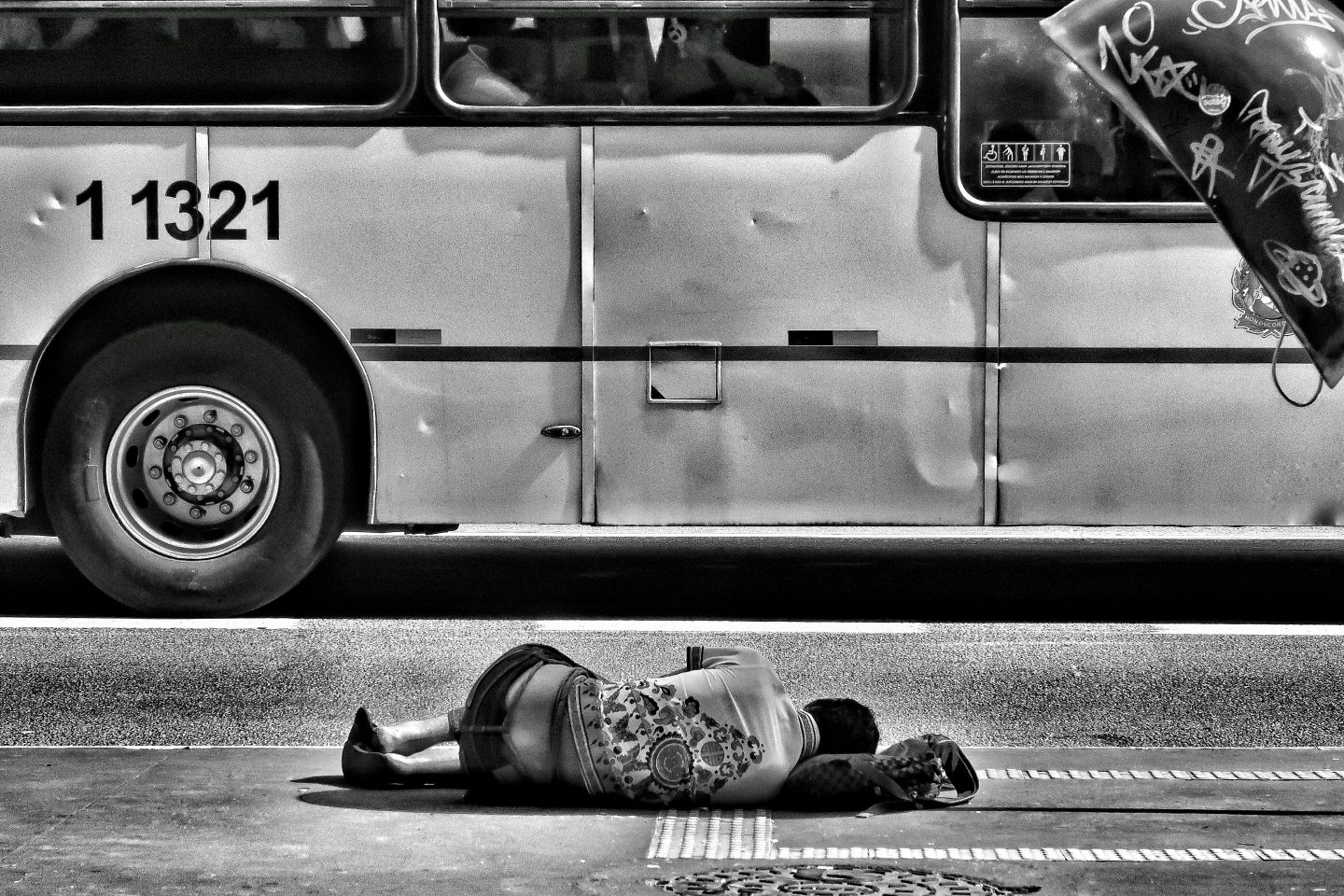Psalm 73: Walking with God through the injustices of life
Pastor Tan Huai Tze (via IMPACT) // June 13, 2020, 6:39 pm

Injustices can point us to reality, purge us of recklessness, and press us towards redemption, says Pastor Tan Huai Tze. Photo by D A V I D S O N L U N A on Unsplash.
The Bible has much to say about injustice. It tells us a lot about God’s goodness, humanity’s sinfulness, redemption in Christ, and the coming judgment and hell, important matters to help us make sense of injustice.
It also gives us rich resources to deal with injustices as we experience them. One of those is Psalm 73.
Here, the Bible records the struggles of someone facing injustice, and how that person brings that struggle before God. It shows us that we can actually come out stronger, better, more compassionate and useful if we walk with God through the injustices of life.
In fact, those injustices can do important things to us:
- They can point us to reality (Psalm 73:1-12)
- They can purge us of recklessness (Psalm 73:13-17); and
- They can press us towards redemption (Psalm 73:18-28)
Absolute and real
In recent months, we have seen the proliferation of the phenomenon known as “fake news”. Websites have been set up to deliberately spread hoaxes, disinformation, and propaganda.
What many of us don’t realise is that we often live lives shaped by “fake news.” Our perceptions of the world around us are too positive or unduly negative. What we need to grow to maturity is a good dose of reality.
For Christian author, CS Lewis, injustice pointed him to reality.
The Psalmist faces the blatant reality of injustice. The “arrogant” and the “wicked” do prosper (Psalm 73:3)! They are carefree, and “have no pangs until death” (Psalm 73:4), nor are they in “trouble” and “stricken like the rest of mankind” (Psalm 73:5).
Rather poetically, he says their “eyes swell out through fatness” as their “hearts overflow with follies” (Psalm 73:7). On the other hand, the righteous are “stricken” and “rebuked” (Psalm 73:14). This is a good dose of realism.
Yet the Psalmist also allows this injustice to drive him to the reality of God.
Yes, he acknowledges a sense of vanity in being righteous (Psalm 73:13-14), and yet, he still knows that “God is good to Israel, to those who are pure in heart” (Psalm 73:1). He runs “into the sanctuary of God” (Psalm 73:17), and there finds resolution. Some people let the experience of injustice drive them away from God, but the Psalmist does the opposite!
CS Lewis had originally rejected the idea of God precisely because of injustice in the world. However, he soon realised that the opposite should have happened. He wrote:
“My argument against God was that the universe seemed so cruel and unjust. But how had I got this idea of ‘just’ and ‘unjust’? What was I comparing the universe with when I called it unjust? Of course I could have given up my idea of justice by saying it was nothing but a private idea of my own. But if I did that, then my argument against God collapsed too – for the argument depended on saying that the world was really unjust, not simply that it did not happen to please my private fancies …”
Without the existence of God, Lewis would have no universal notion of “justice”. But it was precisely this notion of “justice” that justified his moral outrage against God! And so, far from disproving the existence of God, the presence of injustice actually pointed to the reality of such a thing as justice, and hence to the reality of an absolute, and an absolute Being.
Lewis eventually shed his atheism, and became one of the foremost apologists of the Christian faith of the last century!
Injustice had pointed him to reality.
Living with accountability
While our experience of injustice can tempt us to be cynical and sceptical about doing good and living rightly, as it did the Psalmist (Psalm 73:13), we need not succumb to it.
Your experience of injustice can actually give you a resolve to choose the path of justice.
In fact, the opposite is true. That we can truly identify something as unjust, and feel that sense of unfairness deeply in our hearts, actually shows us that there are real consequences to our actions. Yes, the wicked may prosper, but they prosper with real “malice” and “oppression” (Psalm 73:8).
So, your experience of injustice can actually give you a resolve not to live like the wicked, but to choose the path of justice.
Additionally, Psalm 73 tells us that, as the Psalmist sought God, he “discerned” the “end” of the wicked (Psalm 73:17). He saw that there was a judgment to come on the wicked, that would show, as Martin Luther King Jr put it, that “the arc of the moral universe is long, but it bends towards justice”.
All accounts will be settled. The wicked may prosper now, but peel back the layers of reality, and they are actually in “slippery places”, they will “fall to ruin”, be “destroyed in a moment … swept away utterly” (Psalm 73:18), and “perish” (Psalm 73:27).
We can be too lenient, or too harsh, in our assessment of justice. God, however, has a perfect sense of justice, and is ultimately fair.
Our experience of injustice should lead to reflection on why there is injustice in this world. Who is finally responsible?
Knowing this should fortify us as we face injustice, and sober us too. It can purge us thoroughly of our own recklessness, if we let it. Yes, others have been wicked and deserve their just desserts, but have we been unjust in any way too?
Our experience of injustice, especially deep injustice, should lead to reflection on why there is injustice in this world. Who is finally responsible? Who perpetrates injustice? And, if we are honest enough, is there any personal culpability? Are we in any way responsible for the injustice that is in this world?
After his encounter with God, not only does the Psalmist discern the end of the wicked, he comes to see his own part in perpetrating evil. He admits that he was “brutish and ignorant”, and “like a beast” (Psalm 73:22) toward God, and that his only hope of escaping God’s judgment himself, is to find “refuge” in God (Psalm 73:28).
If we are honest with ourselves, we’ll come to the same conclusion as the Psalmist.
After all, the same self-serving selfish attitudes of the perpetrators of injustice reside in our own hearts. And perhaps the only thing that holds us back from perpetrating that same evil is the lack of opportunity.
Knowing this should sober us, and purge us of our own recklessness in life, motivating us to live more responsibly toward God, and others.
A message of hope
In fact, as we cry out for justice from God, and as we cry out for God to eradicate evil, we need the sobering reminder that God’s justice should fall on us and eradicate us too.
If God expressed His justice and fairness on us, we might not get what we thought we wanted. That is the tension within this Psalm.
“God takes our misery and suffering so seriously that He was willing to take it on Himself.”
How can the Psalmist, “brutish and ignorant” (Psalm 73:22) find the God as the “strength” of his heart, and his “portion forever” (Psalm 73:26)? How can he be “near God,” yet not be judged, but instead find it “good” (Psalm 73:28)?
In fact, this tension runs through the pages of Scripture, and is finally resolved in a supreme act of injustice by that God! Jesus Christ, the one who was innocent (Luke 23:14) was nonetheless unjustly put to death, to take the judgment that we justly deserved.
When we look to the Cross of Christ, we may still have lingering questions pertaining to why God allows injustices to continue in this world.
But, as Timothy Keller puts it, “it can’t be that He doesn’t love us. It can’t be that He is indifferent or detached from our condition. God takes our misery and suffering so seriously that He was willing to take it on Himself”.
So, while we wait for all injustice to finally be brought to an end (Revelation 21:4), we find meaning and strength in it through the Cross.
And through that same Cross, we bring a message of hope to the world, and work for a world that is more just.
First printed in IMPACT Magazine in 2017 and republished with permission.
How “just” is your Facebook or IG post: Melissa Kwee challenges Justice Conference Asia delegates
“Forgiveness is a big missing link in healing”: Dr Michelle Strydom
We are an independent, non-profit organisation that relies on the generosity of our readers, such as yourself, to continue serving the kingdom. Every dollar donated goes directly back into our editorial coverage.
Would you consider partnering with us in our kingdom work by supporting us financially, either as a one-off donation, or a recurring pledge?
Support Salt&Light



